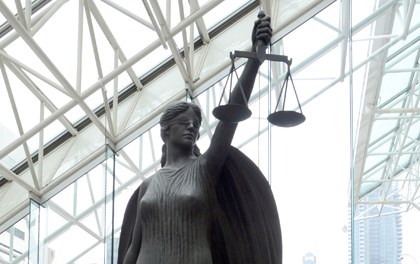The 14-year dispute between the BC Teachers’ Federation and province will be settled once and for all by the Supreme Court of Canada.
The top court announced Thursday morning it would hear the teachers’ case. At issue is whether it was a violation of the teachers’ right to freedom of association under the Canadian Charter of Rights and Freedoms when the province stripped out provisions in their negotiated contract for class size and composition.
The teachers sued and won at a lower court in 2012. The province appealed the decision and the teachers’ case was quashed in 2015, with the BCTF promising they would request their case be heard by the Supreme Court of Canada.
Rob Millard, president of the West Vancouver Teachers’ Association, greeted the news warmly.
“I had high hopes. My expectations were tempered. You don’t want to get overly optimistic. Anything can happen but I’m obviously really pleased the Supreme Court has chosen to hear our case.”
Education Minister Mike Bernier responded with a statement soon after the news broke.
“We’ve always said that the BCTF’s application to have their case heard in the Supreme Court of Canada is part of the democratic process. We are confident in our legal position and appreciate any further guidance the court may provide,” it stated.
Should the teachers be successful, it will come with significantly higher costs for B.C. residents, the province has warned in the past – somewhere in the ballpark of $500 million in retroactive liabilities.
“If we got our class size language back that was stripped back in 2002 when Christy Clark was the minister of education, they would have to hire more teachers. That would be good for students,” Millard said. “We’d have more specialist teachers. We’d have more classroom teachers. Obviously, that would increase services to students, which is what it’s all about.”
Bernier said since inking a strike-ending agreement with the teachers in 2014, the relationship has “never been better” – something Millard largely corroborated.
“I guess we’re in a good place. It’s calm. Teachers are happy. There’s no issues to deal with. We’re back to work. We’ve got a contract until 2019 and that’s exactly what teachers want,” he said. “Obviously we disagree on money. We think that there should be more funding, but as far as the day-to-day business of education, I think the relationship is pretty good.”
But the court case has loomed over many fraught labour negations between the two sides and many of the teachers who were around when the fight began will not share in results of the Supreme Court’s judgment when it comes, Millard said.
“I think what teachers want is closure. So many of my colleagues have retired since that day of protest back in 2002 when our contract was stripped. I would like to see it resolved before I retire,” he said with a laugh. “A whole generation of kids have gone through the system where we could have done better things for them.”



